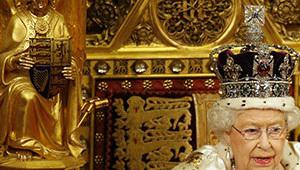14 October 2010
Some 192 public bodies are to be scrapped under government proposals announced today, while another 289 will be reformed.
Cabinet Office minister Francis Maude revealed their fate in a written ministerial statement to the Commons this morning.
The announcement came after a review of 901 quangos, non-ministerial departments and public corporations. The total number will now be brought down to 648, including 118 mergers.
Some responsibilities will be brought back into Whitehall or devolved to local government while others will be scrapped altogether. A handful of organisations will become charities.
Many closures had already been announced, including that of the Audit Commission, Health Protection Agency, the Infrastructure Planning Commission and the Standards Board for England. Among the new cohort to be abolished are the National Housing and Planning Advice Unit and the Valuation Tribunal service, both of which report in to the Department for Communities and Local Government.
Functions carried out by development corporations, such as the London Thames Gateway Development Corporation, will be transferred to local government.
Among the quangos to be ‘substantially’ reformed are the Equalities & Human Rights Commission, the Homes & Communities Agency and the Environment Agency.
Maude claimed the changes would ‘increase accountability in public life, while making savings and driving out inefficiency and waste’. He added: ‘Too many public bodies have been established without proper thought, and allowed to remain when their mission has long been accomplished.
‘This has meant that elected politicians have been able to avoid making difficult and tough decisions. This is a direct challenge to accountability and is contrary to the openness and transparency in public services that this government seeks to achieve.’
Maude said quangos that survived the cull would be subject to greater scrutiny.
Those that are to be retained include the Higher Education Funding Council for England, the Charity Commission for England & Wales and Monitor.
The
Local Government Association said councils had been campaigning for years to
cut the number of quangos and pass power to local people. LGA chair Margaret
Eaton said: ‘As we face the toughest
spending review in memory it simply isn’t acceptable to have decisions over
help for millions of people made by unelected officials remote from the front
line and it is good that ministers have recognised this.’
But she added that there were still questions to be answered on the future of
education funding quangos and others such as the Homes and Communities Agency.
‘The acid test will be whether ministers allow decisions to be taken at the
front line by locally elected people who know their neighbourhoods best, or
simply replace unaccountable quangos with unelected civil servants in
Whitehall,’ Eaton said.
But trade union leaders expressed concern. Trades Union Congress general
secretary Brendan Barber said the cull was not about efficiency or saving money
because 'ministers seem very vague about the finances'.
'Instead
they want to reduce democratic accountability, get rid of bodies that stand up
for ordinary people against government or business excess, and centralise power
in Whitehall,' he said.
Unite trade union said the move was ‘ill-thought out’ and ‘ideologically-driven’. Joint general secretary Tony Woodley said: ‘There has been little or no consultation on these proposals from this “we are all in this together” government.
‘In many areas of the economy and social policy, quangos are important in protecting the economically vulnerable, the put-upon consumer and acting as economic generators.
A Public Bodies Bill will now be introduced to enable the changes. The future of another 40 bodies remains under review.



















